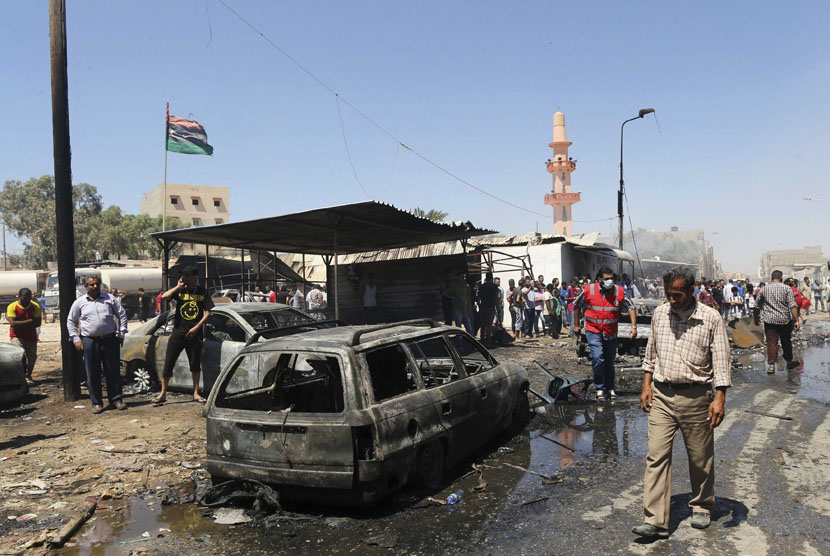REPUBLIKA.CO.ID, NEW YORK -- The UN humanitarian agency estimated that the deteriorating security situation in Libya has affected almost two million people across the country, a UN spokesman told reporters here Wednesday.
"The Office for the Coordination of Humanitarian Affairs (OCHA) says that the deteriorating security situation has spread from the Tripoli International Airport and vicinities to other areas in the country," UN spokesperson Stephane Dujarric said at the daily briefing. "Although the humanitarian information available is limited, an estimated 2 million people have been affected by the conflict."
The spokesman noted that UN agencies and national partners are assessing the humanitarian needs and have identified fuel, water, power, protection, hygiene services, health care and support to migrants as key priorities for immediate response.
He also quoted OCHA as saying that "a preliminary response plan is being developed."
"The Libyan government, the Libyan Red Crescent Society, some local and international organizations are seeking to respond to humanitarian needs but their efforts have been affected by the lack of resources and access," Dujarric added. "Most international organizations are currently operating from Tunisia."
Libya has witnessed a drastic escalation of violence since the 2011 turmoil, which toppled its former leader Muammar Gaddafi, and its political transition has since been mired in the endless fights between Islamist and secular factions.
Since July 13, Tripoli has endured bloody clashes between Islamist armed groups and pro-secular militias, both seeking to gain control of Tripoli's international airport.
The conflict has spread to other major cities like Benghazi, Gharyan and Zawiya. On Aug. 23, islamist fighters claimed that they had controlled Tripoli's international airport, one of the key strongholds for pro-secular militia. Meanwhile, in the second largest city of Benghazi, Islamist forces have seized nearly 80 percent of the area.
On Aug. 27, the UN Security Council adopted a resolution on Libya, calling for "an immediate ceasefire" in the country and expanding sanctions to include those involved in violence there.


